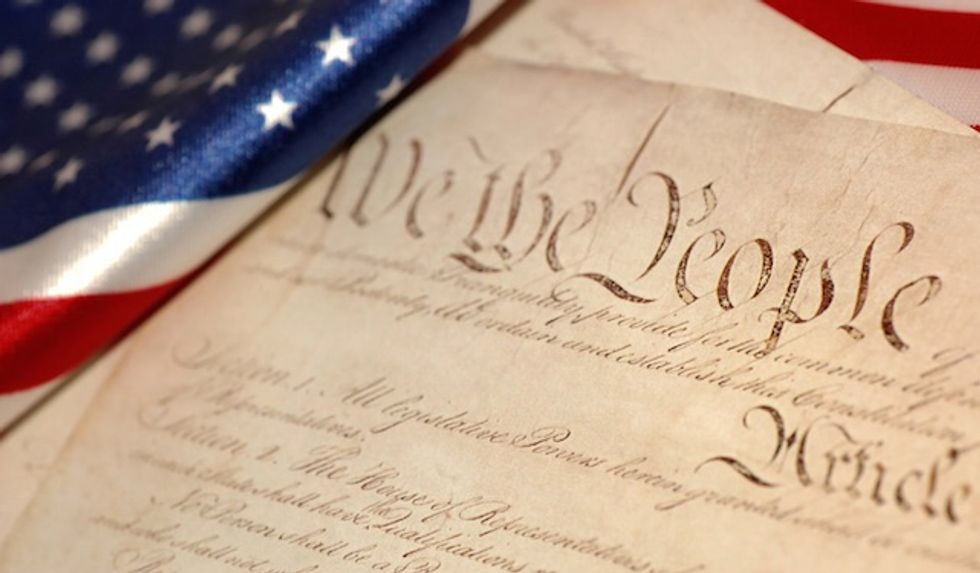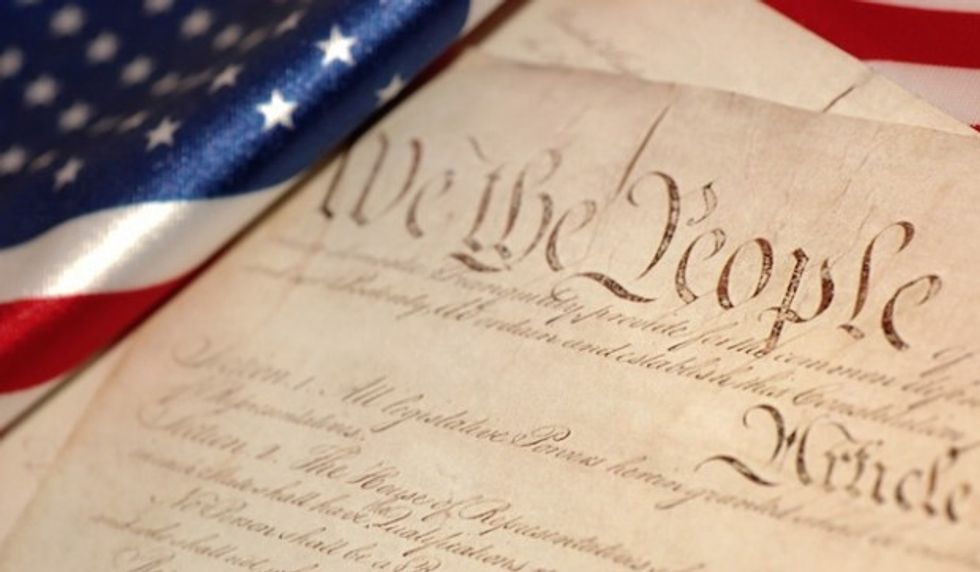
Shutterstock

In a recent speech by Antonin Scalia, the Supreme Court justice claimed the United States has always had a special relationship with God, suggesting one reason America has been so successful is because of the nation’s tradition of faith.
“God has been very good to us. That we won the revolution was extraordinary. The Battle of Midway was extraordinary. I think one of the reasons God has been good to us is that we have done him honor. Unlike the other countries of the world that do not even invoke his name we do him honor. In presidential addresses, in Thanksgiving proclamations and in many other ways,” Scalia said.

The notion that God plays an intricate and in-depth role in the cause of liberty is certainly not a new idea. Even Thomas Jefferson, widely known as one of the most skeptical and least religious of all the Founding Fathers, declared this in 1779, “That [God] would in mercy look down upon us, pardon all our sins, and receive us into his favor; and finally, that he would establish the independence of these United States upon the basis of religion and virtue, and support and protect them in the enjoyment of peace, liberty and safety.”
Modern America is quite different, of course. We’re a nation of far more “enlightened” people, compared to virtually every other Western country for the past 1,000 years. Science, rationalism, and a fervent belief that only a loose understanding of spirituality is acceptable in the public sphere have become the religions of choice for the American people.
Now, there’s nothing wrong with emphasizing the importance of science, thinking rationally, or wanting people to practice their religious beliefs freely, but one has to wonder whether the freedoms enjoyed in the United States, which was founded based on the ideals of Christianity, can survive without the very cornerstone—faith in God—the Founders themselves believed to be such an important part of the development of the nation.
It may sound as though I’m suggesting, as Scalia did, God will punish us (or refuse to reward us) if we as a people don’t repent and turn to God. I’m actually not making that argument at all. Rather, my suggestion is that without faith, the philosophical concept of freedom becomes utterly devoid of any meaning, and perhaps, with time, freedom without faith becomes impossible to justify. Similarly, without faith in God, it’s possible tyranny—whether it comes in the form of totalitarianism, socialism, communism, or in some other system—is inevitable.
It all comes down to the importance of individual liberty. Ultimately, what distinguishes American freedom from socialism, communism, etc. is that there is a firm belief in guaranteed rights granted at birth, a concept Jefferson captured in the Declaration of Independence when he wrote, “We hold these truths to be self-evident, that all men are created equal, that they are endowed by their Creator with certain unalienable Rights, that among these are Life, Liberty and the Pursuit of Happiness.”
The concept of “unalienable Rights” is essential to the whole foundation of the argument in favor of freedom. “Unalienable” in this sense means those rights which cannot be destroyed, abridged, or taken away. They are so essential to the human experience that no person, even the king of England, has the power to undermine those liberties.
But which liberties are “unalienable” and where do they come from? Jefferson firmly announces these rights are “endowed by their Creator,” the ultimate source of all rights and freedoms. This is perhaps best summarized by a slogan popularized in reaction to the Stamp Act in 1765 by Pennsylvania Presbyterians, who reportedly shouted “No King but King Jesus.”
Similarly, Thomas S. Kidd, in his book "God of Liberty," notes John Adams made a similar claim: “‘Liberty must at all hazards be supported,’ [Adams] avowed, because all people had ‘a right to it, derived from our Maker.’”
If there is no God, or if God is to be so abandoned from the public sphere so as to effectively remove Him from the public consciousness, then where do liberties come from? Upon what grounds may a person stand before a king, Congress, or the president and say, “You have no right to take away my freedoms”?
Many have argued throughout history humans inherently have rights without making an appeal to God, and many good atheists, including quite hostile atheists, are strong supporters of freedom and personal liberty, but this is usually done based on one of two possible foundations: (1) Freedom ought to be granted because there is some sort of inherent, natural right to it granted to all creatures, or (2) people ought to be free because freedom is a more efficient and effective system for society.
Having held both views myself prior to having any faith in God, I can sympathize with each position, but neither view is ultimately sustainable.
If freedom is a natural right endowed by nature, who is to say humans ought to have any more “freedom” than a deer, cow, or chicken? Aren’t they also natural creatures? Even if freedoms are given naturally, without the need for a Creator, how are we to decide which freedoms exist and which freedoms do not? Aren’t there all sorts of undesirable, natural parts of life we as humans are vehemently opposed to? For instance, isn’t it “natural” for two animals to fight (even to the death) over a place to live, another animal to kill, or over a mate? Human civilization developed precisely because people wanted to, in some sense, escape the brutality of nature, so am I now supposed to believe that very harsh environment I’m fleeing from is my source of liberty?
I agree that liberty, in the vast majority of cases, produces more wealth, technological innovation, and happiness than a system that puts a relatively small group of people in charge of controlling a society’s rights and wealth, but if the entire argument in favor of liberty can be reduced to “it works better,” then all one must to do to destroy freedom is convince others tyranny can be more effective, which is precisely what Mousseline, Hitler, Julius Caesar, Napoleon, and countless other tyrants throughout history have been able to accomplish. To a lesser extent, we already see this sort of thinking rampant in America, and the existence of government programs such as Obamacare serve as further proof of it.
Without God, there are no “unalienable Rights,” only temporary liberties graciously granted by those in power to those without power, until, of course, they are dismantled for whatever reason those in control determine is necessary. Even in a democracy, liberties are reduced to whatever the majority of people want, rather than a firmly established set of principles that cannot be altered, destroyed, or harmed in any way. Freedom, in essence, becomes like the wind: here one moment, gone the next, with no guarantee it will ever return again in the same form as it once did.
–
TheBlaze contributor channel supports an open discourse on a range of views. The opinions expressed in this channel are solely those of each individual author.
Justin Haskins